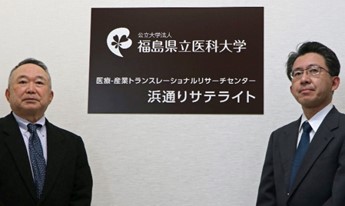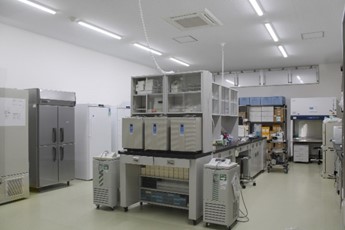Renewable energy
Aiming to become a "pioneering region in renewable energy", initiatives are conducted to expand the adoption of renewable energy and promote industry cluster.
Revitalization principle and renewable energy promotion vision
Revitalization Principle:Building a safe, secure sustainably developing society free from nuclear power
- Switch to low carbon/circular society with less environmental impact
- Revitalization (Promotion of local community)
Initiatives will be conducted focusing on the four pillars under the "renewable energy promotion vision"
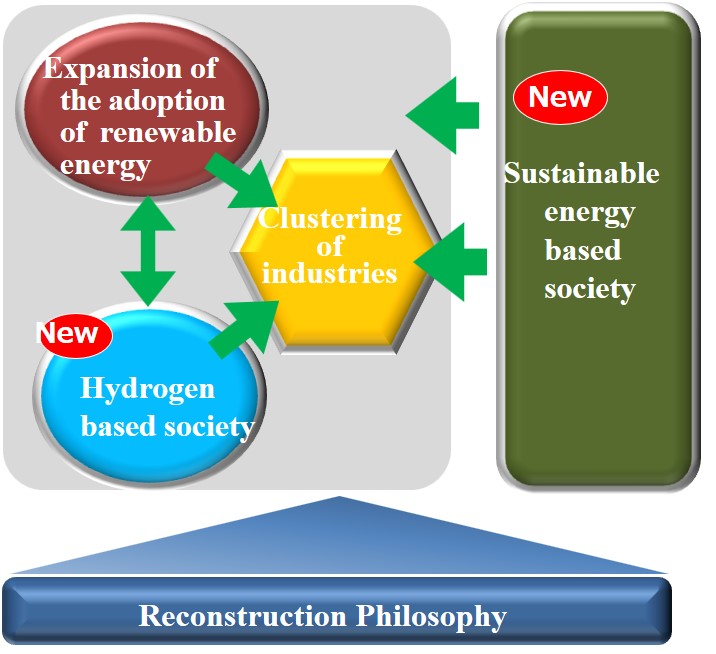
Targets of adoption
|
Index |
Targets |
Present state |
|---|---|---|
|
Amount of the adoption of renewable energy in relation to the Prefecture's energy demand |
100%(2040) |
54.9%(FY2023) |
|
Amount of the adoption of renewable energy for the amount of power consumed in the Prefecture |
100%(FY2025) |
102.9%(FY2023) |
|
Number of stationary hydrogen station installed |
20Units(FY2030) |
6Units(FY2024) |
Clustering of industries
- Promotion for development of technologies related to renewable energy, commercialization, expansion of market channels and overseas expansion
- Fostering and securing human resources in renewable energy related industries such as wind power O&M
- Promotion of solar power and recycle of storage batteries etc. and creation of new business model
*Meaning of O&M
It is an abbreviated expressions of Operation and Maintenance.
Sustainable energy based society
- Utilisation of energy in local communities (Promotion of local production and consumption, Smart Community)
- Consideration of environment and landscape, etc.
- Implementation of thorough energy conservation (Energy-saving measures, renovate or build public facilities for ZEB)
* What it means to achieve ZEB
It is an abbreviattion for Net Zero Energy Building, called ZEB. It refers to buildings that aim to achieve annual primary energy consumption balance of zero while realizingcomfortable indoor condition.
To realize a hydrogen based society
Benefits of utilising hydrogen
It can be generated from renewable energy and other resources and stored for a long period of time. It does not emit CO2 while being utilised.
Fukushima Hydrogen Energy Research Field (FH2R)
Fukushima Hydrogen Energy Research Field was opened in Namie Town on 7 Mar. 2020. This is one of the world's largest hydrogen production bases from renewable energy sources (utilizing 20MW
generated solar power).
It can supply up to 1,200 Nm3 of hydrogen per hour (rated power) and fill up about 560 fuel cell.
Hydrogen stations, fuel cell bus, and fuel cell vehicles were adopted in various places.
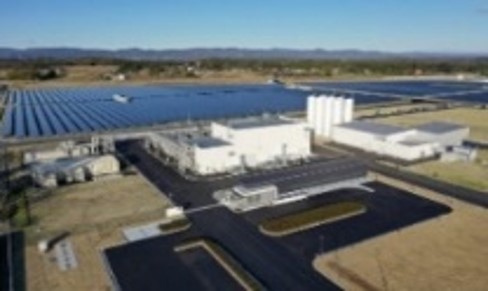 |
|
Fukushima Hydrogen Energy Research Field (FH2R) |
Hubs for renewable energy in the Prefecture
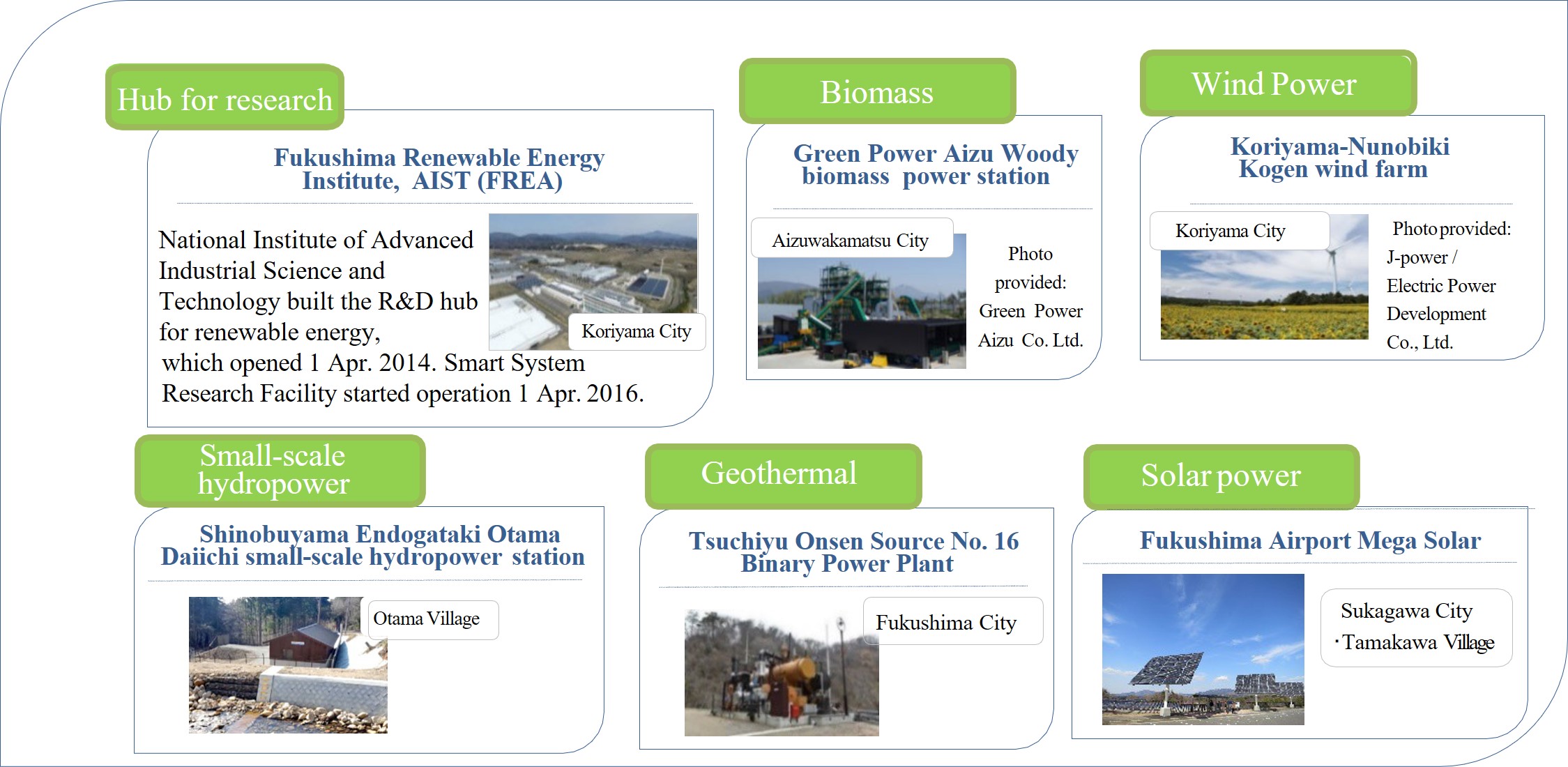
Medical Industry
Next-Generation Medical Industry Agglomeration Project
Fukushima Prefecture is at the forefront of the production of medical devices in Japan. To further develop the local medical industry sector, we initiated the ‘Utsukushima (Beautiful Fukushima) Next-Generation Medical Industry Agglomeration Project’ in FY 2005 and are pursuing various initiatives as a pillar of revitalization to overcome the Great East Japan Earthquake. As a result of these continuing efforts, the medical industry in Fukushima Prefecture has made a steady progress. Many businesses have entered the medical sector, and tried to develop new medical devices, and production processes have been scaled up and professionalised. To build on these previous efforts, in FY 2021, we started the initiative ‘Connected in Fukushima – A Fukushima that connects beyond regional borders’, in order to form a medical devices industry cluster that builds connections beyond regional borders. The strength of this prefecture’s manufacturing sector lies in its prowess in component manufacturing. To leverage this strength and improve access to medical industry markets, we support businesses by monitoring demand for components among medical device manufacturers throughout Japan and abroad. Based on our slogan ‘Finding Cutting-Edge Technology for Medical Devices in Fukushima Prefecture’, we strive to develop the prefecture’s position as a hub for global networks involving industry, public research institutions and governments.
Next-Generation Medical Industry Agglomeration Project website (English version).
Fukushima Medical Device Development Support Centre
In order to support the development and commercialization of medical devices in an integrated fashion, the centre has established facilities for conducting safety evaluations using large animals and providing training for healthcare professionals in device operation.
It offers support based on four key functions essential for medical device development.
- Safety testing
- Consulting
- Matching and
- Talent development and training
Fukushima Medical Device Development Support Centre website(English version)
Fukushima Medical Device Development Support Centre brochure (English version)
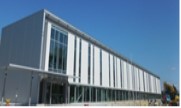 |
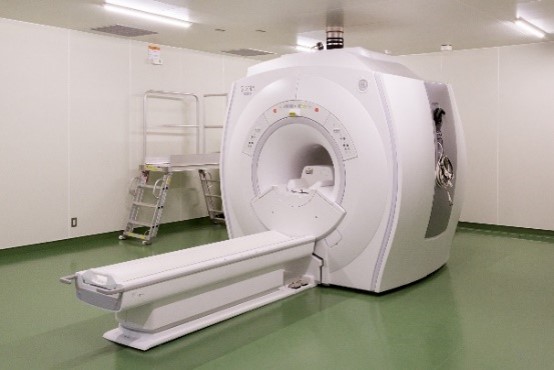 |
|
Exterior view of the centre |
MRI (Biological Safety Testing) |
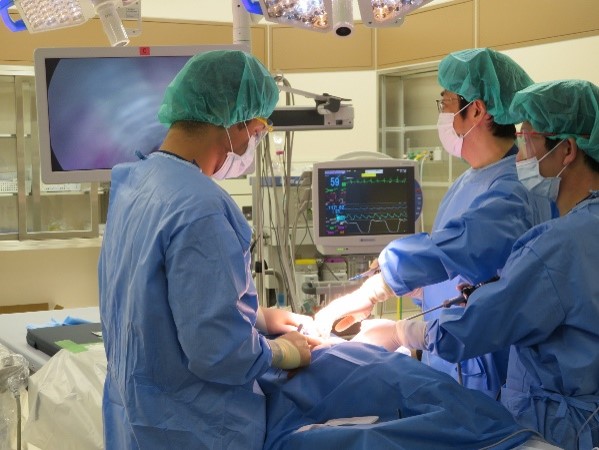 |
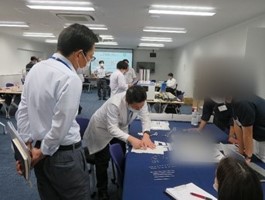 |
|
Training scenes |
Collaboration and matching between medicine and engineering |
Fukushima Medical University
- Medical-Industrial Translational Research Centre
- Coastal Region Satellite Office
Medical-Industrial Translational Research Centre at Fukushima Medical University serves as a bridge between the medical and industrial sectors. It has established a base to support drug discovery, including the development of new treatments, diagnostic drugs, and testing reagents for cancer, infectious diseases and other medical conditions. In November 2021, the Coastal Region Satellite Office was opened to provide support specifically to companies in the Coastal Region.
Medical-Industrial Translational Research Center Website (English version).
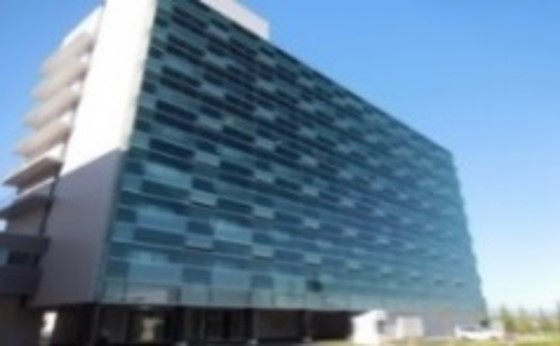 |
|
|
Exterior of the centre |
Activities at the Coastal Region Satellite Office. |
The robot industry
Fukushima Robot Test Field
Based on the Fukushima Innovation Coast Framework, the Fukushima Robot Test Field (RTF) has been established as a major development and demonstration site for land, sea and aerial robots. It recreates real-life environments such as infrastructure and disaster sites, providing an unparalleled facility for evaluating robot performance and conducting pilot training.
This facility is located within Minamisoma City’s Reconstruction Industrial Park, spanning approximately 1,000 meters east-west and 500 meters north-south. It includes designated areas for "Drone airfield area," "Infrastructure inspection and disaster response area," "Underwater and water-surface robot area," and "Research & development complex." Additionally, a runway for long-distance flight tests has been developed within the Namie Town’s Tanashio Industrial Park. In 2021, the Infrastructure and Disaster Response category competition of the World Robot Summit 2020 Fukushima took place at the test plant and tunnel.
Fukushima Innovation Coast Framework
The Fukushima Innovation Coast Framework concept is a national project aimed at revitalizing industries in the Hamadori region and other areas affected by the Great East Japan Earthquake and nuclear disaster. It seeks to establish a new industrial foundation. The project focuses on specific fields such as decommissioning, robotics, agriculture, forestry, fisheries, energy, and environment/recycling, while also promoting industrial clustering, human resource development, and increasing social interaction.
Robot Test Field phamphlet (English version)
Robot Test Field website (English version)
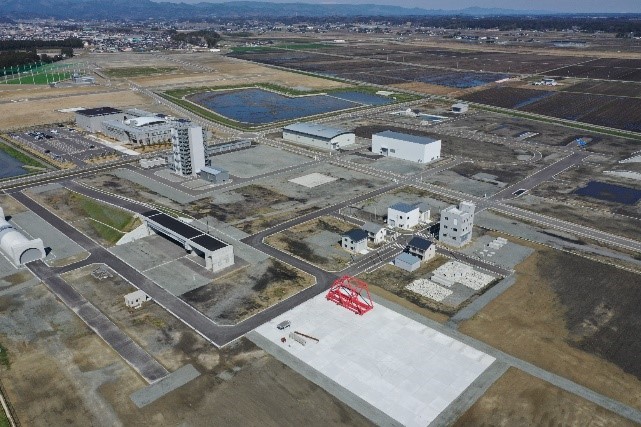 |
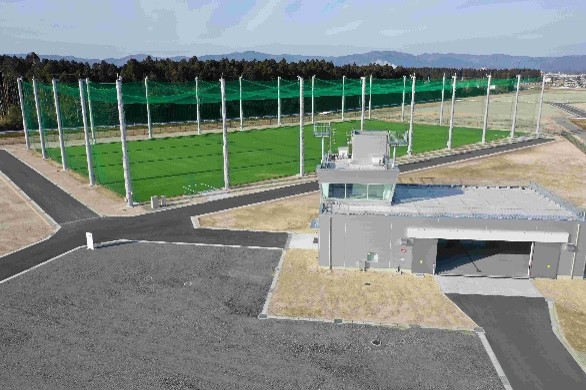 |
|
Exterior view of the Robot Test Field |
Airfield with impact absorption net |
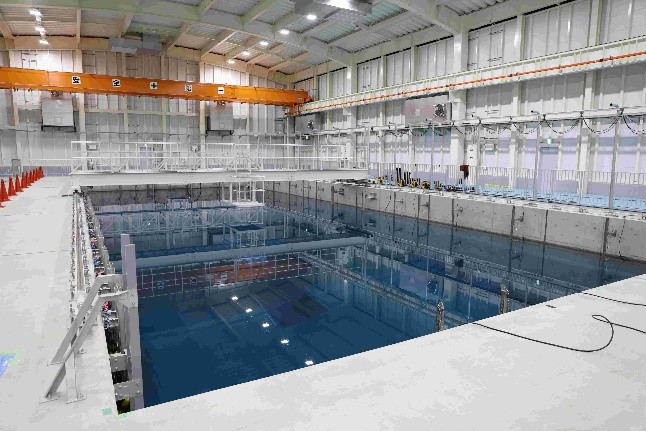 |
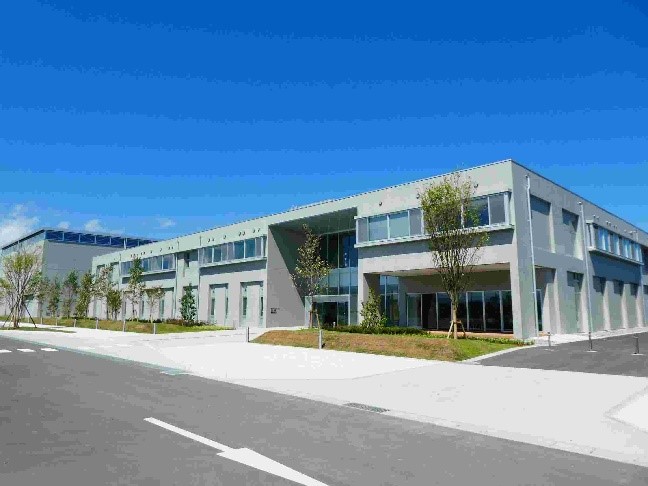 |
|
Interior view of the indoor water tank building |
Research building |


